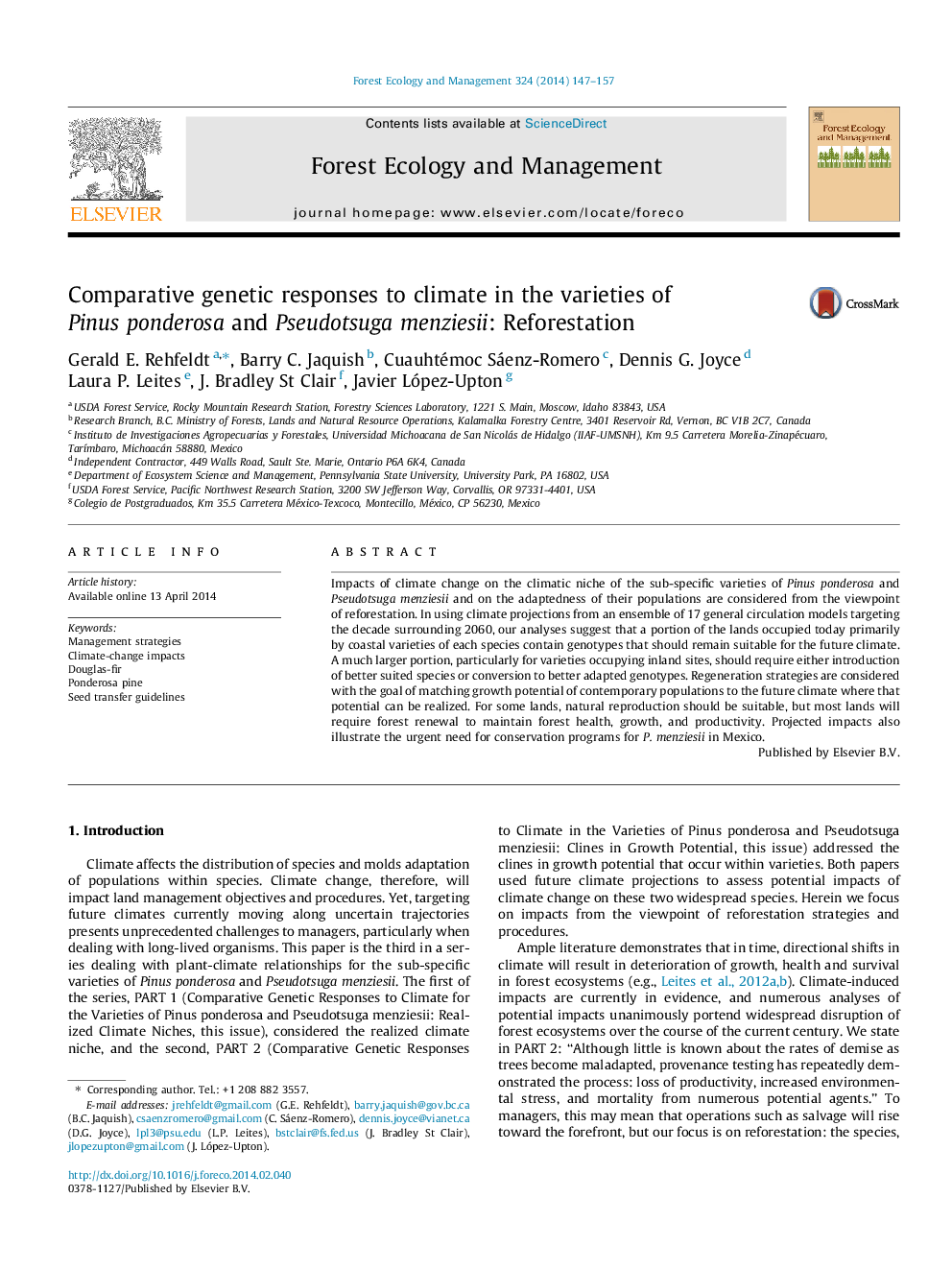| Article ID | Journal | Published Year | Pages | File Type |
|---|---|---|---|---|
| 86634 | Forest Ecology and Management | 2014 | 11 Pages |
•Climate change will impact reforestation strategies.•We assess impacts to Pinus ponderosa and Pseudotsuga menziesii varieties.•Few populations should remain adapted to the 2060 climate of their provenance.•High proportions of forested lands will need species or climatype conversion.•Conservation programs of P. menziesii in Mexico are of urgent need.
Impacts of climate change on the climatic niche of the sub-specific varieties of Pinus ponderosa and Pseudotsuga menziesii and on the adaptedness of their populations are considered from the viewpoint of reforestation. In using climate projections from an ensemble of 17 general circulation models targeting the decade surrounding 2060, our analyses suggest that a portion of the lands occupied today primarily by coastal varieties of each species contain genotypes that should remain suitable for the future climate. A much larger portion, particularly for varieties occupying inland sites, should require either introduction of better suited species or conversion to better adapted genotypes. Regeneration strategies are considered with the goal of matching growth potential of contemporary populations to the future climate where that potential can be realized. For some lands, natural reproduction should be suitable, but most lands will require forest renewal to maintain forest health, growth, and productivity. Projected impacts also illustrate the urgent need for conservation programs for P. menziesii in Mexico.
